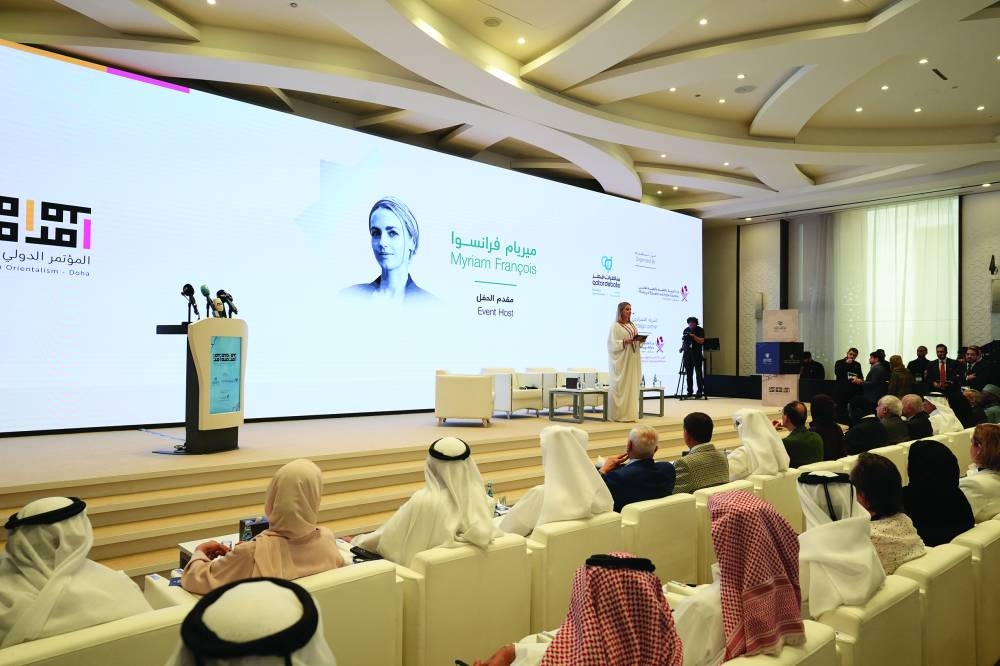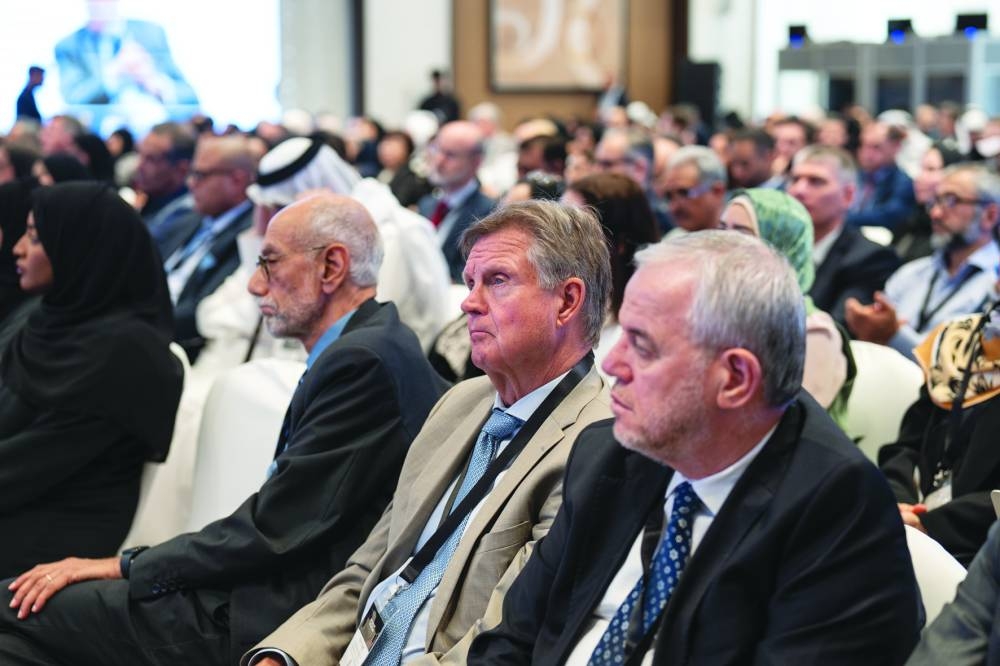The latest in the Orientalism studies regarding the Arab and Muslim world were discussed and reviewed at the first edition of the International Conference on Orientalism.
The two-day conference concluded in Doha Sunday.
Qatar Debates Centre programmes director Abdulrahman al-Subaie pointed out that "Orientalism is no longer merely a traditional academic subject” as it has become “a framework for a deeper understanding of cultural relations between East and West”.
He noted that this conference provides researchers and thinkers with a space and platform for scholarly dialogue, free from biases and preconceived judgements, in an environment that welcomes diverse opinions and different approaches.
"At the Qatar Debates Centre, we believe that sincere and open discussion is the key to deepening understanding and building bridges of communication based on knowledge and mutual respect,” al-Subaie said. “The hosting of this conference in Doha ... reflects Qatar’s commitment to promoting knowledge, openness, and supporting initiatives that foster genuine civilisational communication between East and West."
During the conference, experts engaged in discussion on related topics, with special focus on modern tools and the need to use these to verify the authenticity of the information, not just taking the reports of early European orientalists for granted.
One of the panel discussions tackled the topic of *The evolution of the Orientalist vision: new readings on Islam and the Arab world, which included the history of Orientalism and the ways to authenticate the involved information.
Germany-based Syrian author Ibrahim al-Jbain stressed that some resource books have been twisted for particular interests.
However, he said, modern tools, especially artificial intelligence (AI) applications, can easy compare and detect the deception in these.
Sometimes, al-Jbain continued, this can be done through comparing the surrounding historical facts, the script and type folio or paper that was used during the targeted period and others
He said that some powerful AI tools can even detect forged paintings and drawings, besides identifying whether the report given by the orientalist is based on real incidents or just a product of the imagination.
Dr Kinga Dévényi, senior librarian and curator of Arabic manuscripts at the Library of the Hungarian Academy of Sciences, said that the study of Arabic language and culture in Hungary is driven by love and scientific curiosity rather than any involved economic or political targets.
She noted that the ancient history of the Hungarian tribes could be linked to some dealings with the Arab world, so Hungarian scholars look for the common roots.
Dr Dévényi added that the principles of scientific methods should be applied to these ancient heritage texts to extract the truth.
Dr Tamas Ivanyi, retired associate professor at Hungary’s Department of Semitic and Arabic Studies, gave presentation on the live and biography of Julius Abdul-Karim Germanus (1884-1979).
Germanus was a Hungarian professor of Oriental studies, writer and Islamologist, member of the Hungarian Parliament and member of multiple Arabic academies of science, who made significant contributions to the study of Arabic language and culture.
Dr Jan Henningsson, a senior adviser at the Swedish Ministry for Foreign Affairs’s Division for the Middle East and North Africa, said that the Arabic language is one of the most commonly used languages in Sweden due to the considerable number of migrants from Syria and Iraq.
He said that the study of Arabic language is important to delve into the foundation of civilisation and the roots of knowledge.
Dr Henningsson added that German and Swedish orientalism was not driven by occupation and colonization, as these countries did not have colonies in the Arab world.
Other panel topics included "Orientalism, Islam, values, and cultural identity”, "Transformations of cultural discourse: the legacy of Orientalism and postcolonial narratives”, "Women and the East in new Orientalist discourse", and "Between travel, narrative, and asylum: transformations of Orientalism in Western discourse".


